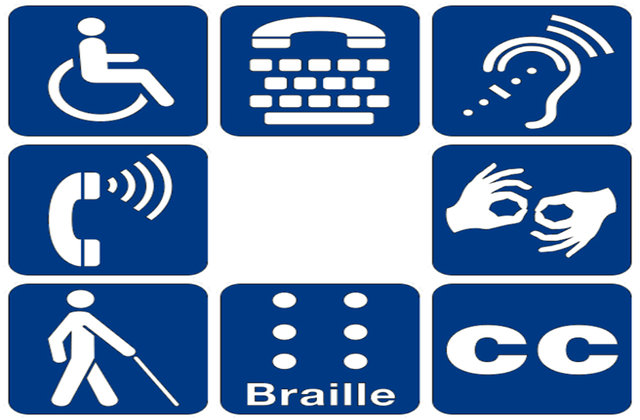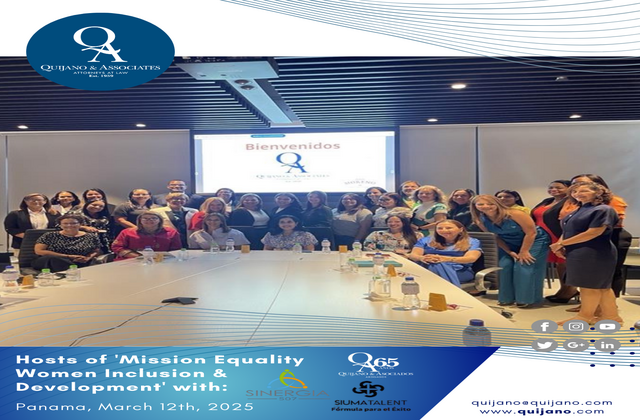EQUAL EMPLOYMENT OPPORTUNITY RIGHTS OF DISABLED PERSONS

By: Jake Diez
As a constant reminder to our staff and also as information available to clients with actual or intended activities within the territory of the Republic of Panama, we refer to the most important aspects of the latest reforms in our legislation concerning equal opportunities and considerations for disabled persons. The reforms and new provisions enacted under Law 15 of the 31st of May, 2016 should always be kept in mind and under strict compliance.
I – Pecuniary fines
Although the obligation of hiring a number of disabled persons equal to two percent (2%) of the personnel and staff of the employer exists since 1999, Law 15 of the 31st of May, 2016 has established certain important aspects, particularly in respect of pecuniary fines for non-compliance, as follows:
“Article 53. of Law 42 of 1999 shall read thus: Article 45. Legal entities (or individuals) that refuse to hire and/or maintain employed 2% of disabled personnel who are duly capable of working shall be bound to contribute to the Ministry of Work and Labor Development an amount equal to the actual minimum wage for each person they have refused to hire, as long as said legal entities (or individuals) continue without complying.
Since such terms as “refusing to hire” are not of common use, they should be understood as a failure to comply with the stipulation of the law that binds the employer to deliver said sums of monies to a specific government entity such as the Ministry of Work and Labor Development.
II – Special protection in case of dismissal
In its Article 54, Law 15 also establishes employee protection to the person with disabilities, the consequences of which are extensive to the respective parents or tutors or legal representatives. It is worth noting that, although it is not applicable in the legislation of other countries in Latin America, said Article’s stipulations covers its applicability to employees of the private sector and to government or other official employees. Furthermore, the Law forbids the exemption of these obligations in respect of government employees in particularly important positions requiring special trustworthiness, because the protection is applicable to any such employee without exception. It is worth noting that Article 2 of the Constitution of Panama specifically stipulates adherence to the International Convention on the Rights of Disabled Persons (BOE/21/04/2008), which does not establish any difference between the public and the private sectors. This Convention creates for all Adherent Nations the obligation to offer proper living standards to such disabled persons and to their families, including proper feeding, dressing and housing standards, and also establishes the obligation to abide by the necessary measures to safeguard said rights with no discrimination on account of disabilities.
However, said Law 15 is not very clear in respect of compliance with said obligation of equality for disabled persons when dealing with particularly trustworthiness requirements of the job or the situations which allow the most serious disciplinary action, i.e., dismissal.
III – Special relevancy attached to “universal accessibility”
Law 15 of the 31st of May, 2016 also stipulates special considerations to hired disabled employees. One always has to bear in mind whatever may be applicable as established in international treaties and conventions in respect of disabled persons or other employees with disabilities or evident limitations, and also recognizes the rights of the family members who take care or provide protection to the disabled persons. In addition to the above, national governments are also responsible for admitting that inabilities are not restricted to physical limitations, social class, surroundings and cultural environment, which may also prevent a person from behaving properly as a human being.
CONCLUSIONS
Law 15 of the 31st of May, 2016, takes interesting steps in the recognition of rights of persons with disabilities; However, it is important to include the provisions on international matters applicable to workers who during service are affected by a manifest disability or weakness, and in turn, to definitively clarify the extent of the law related to the right to work for disabled people, and to those who care for and protect them at the heart of the family. Finally, we must remember that the foundations of these norms are based on recognizing that disability is not exclusively subject of physical limitations; but to suffer, social, environmental and cultural barriers that cause the person with said condition to be restricted from performing properly as a human being.




